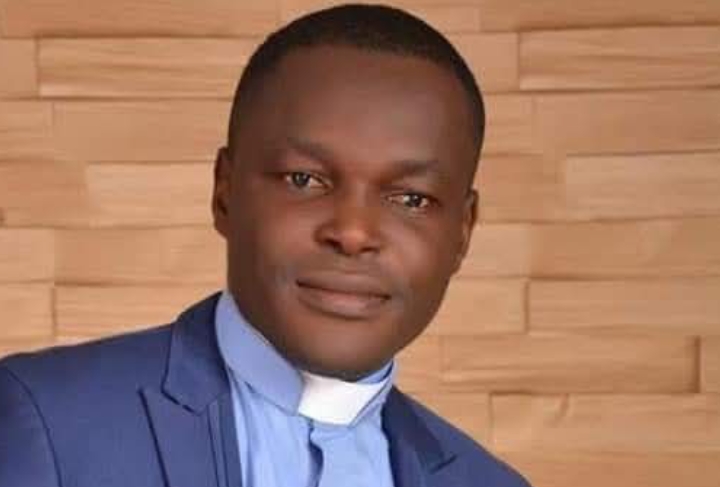By Fr Augustine Ikenna Anwuchie
There is always a strange stillness that lives between the calm of glory and the storm of ruin—a quiet tension, like the breath before dawn or the hush before a hurricane. In that space stands Nigeria: a paradox of promise and pain.
Yes, Nigeria is a success story—at least when you listen to the pulse of her people. The Nigerian spirit, vibrant and indomitable, has earned its place on the global stage. In arts and entertainment, in technology and innovation, Nigerians shine like stars that refuse to be dimmed. Nollywood tells our stories to the world; Afrobeats reverberates through continents; our scholars, athletes, and creators carry the banner of this nation high.
But amid this triumph lies our greatest tragedy—politics.
From independence until now, Nigeria has been held hostage by a predatory political class: an elite clique more united in selfish ambition than in nation-building. These leaders have come, not to serve, but to be served. They have seized power, not to protect the people, but to preserve their privileges.
Our political dysfunction is rooted in three toxic legacies:
A colonial inheritance that equated leadership with domination,
A cultural obsession with wealth and power as the ultimate validations,
And a deep-seated fear of losing either.
These elements have formed the DNA of Nigeria’s political culture—where governance is not stewardship, but exploitation; not a call to serve, but a ladder to climb. Our founding fathers were quick to claim power, yet slow to build unity. Instead of laying the bricks of a cohesive nation, they erected walls of tribe, region, and religion. And so the spiral of national failure began.
The original youth movement—the crucible that birthed great minds like Zik, Awolowo, and Azikiwe—was supposed to usher in a new African consciousness. It began as a torch of liberation but was extinguished by regionalism, ego, and parochial interest. Today, that same division plagues our politics. We have a fragmented elite, loyal not to country or truth, but to the consolidation of influence.
From the collapse of the First Republic, through the civil war, to successive military coups and civilian betrayals—Nigerian leadership has excelled only in one area: self-preservation. And now, a new political ritual has emerged—Coalition—a word that should inspire hope but has become a synonym for betrayal.
Coalitions in Nigeria are rarely about vision. They are about vengeance, access, and survival.
It was a coalition that brought Buhari—a man once hailed as savior, who instead tightened the noose of suffering and unleashed an era of unrelenting poverty.
It was a coalition that enabled Tinubu and his network—a system that has sunk the people deeper into despair.
And now, we hear whispers of a new coalition—this time featuring Peter Obi.
Yes, Peter Obi—the man once hailed as the antithesis of the corrupt structure, now seen sitting at the same table he once condemned. Around him swirl names like El-Rufai and Atiku, men whose records raise as many questions as they silence. And yet, some Obidients—particularly those from Generation Z—argue that to pluck the rose, you must touch the thorn. That even God allowed Satan into the courts of heaven.
But the critical question remains:
Will this coalition serve the people—or merely satisfy the thirst for power?
Atiku eyes the presidency as his final conquest before retirement. El-Rufai longs to preserve his political relevance. Obi, perhaps, still hopes to prove that a new Nigeria is possible. But at what cost?
If this coalition is merely another political pact between North and South, another recycling of familiar names and tired ambitions—then it is nothing but old wine in cracked skins. We have heard enough about zoning, turns, and ethnic arithmetic. What Nigeria needs is not a turn—but a transformation. Not another arrangement among elites, but a revolution of values, systems, and leadership.
How long shall we circle this same mountain?
Other African nations—Senegal, Ghana, Kenya—are beginning to show that democracy can work. That votes can count. That change is possible. Meanwhile, Nigeria continues to elect leaders not by the will of the people, but by the will of money, manipulation, and military might. Our ballots are often stolen before they touch the box. Our cries—whether in the streets of #EndSARS or the aftermath of elections—are silenced with bullets, batons, and betrayal.
Every time Nigerians rise, something crushes them—sometimes tanks, sometimes tribunals, sometimes trauma. But still, the spirit rises.
This is why we must not be lured into another coalition of compromise. Nigeria does not need more deals among the powerful. It needs a rebirth—a governance that reflects the heart of God: just, compassionate, sacrificial, and true. Not politics as usual, but a new order, where righteousness, not regionalism, exalts the nation.
The time has come to reject alliances that recycle failure.
Let us instead insist that our votes must count. Let us build movements that do not just seek to win power, but to change power. Let us remember that God does not need a coalition to transform a nation—He only needs a remnant with conviction.
Let us be that remnant.



